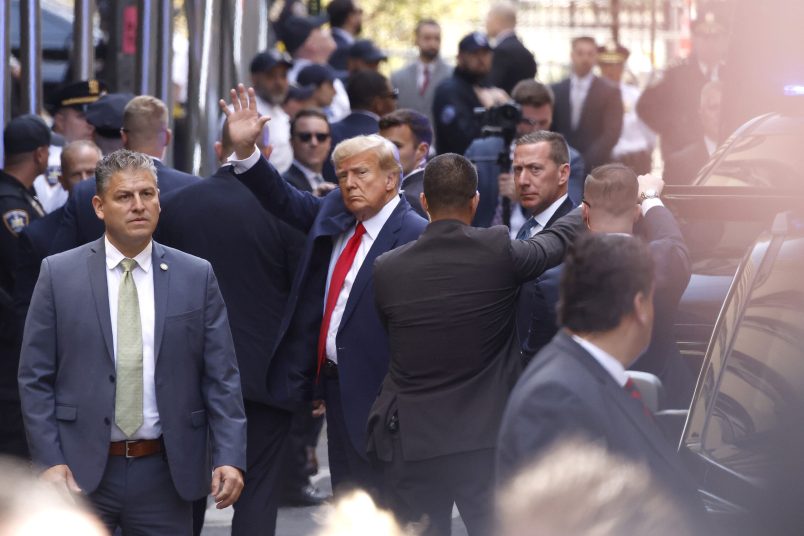As you know, there’s been chatter about whether President Biden should pardon Donald Trump. Of course, before that there was a lot of discussion about whether Trump should be indicted at all. (Jack Goldsmith is still discussing it.) In both cases, the reasoning, such as it is, has been about bringing the country together, avoiding national divisions or sparking a pattern of tit-for-tat presidential prosecutions. It’s also possible the same underlying question could come up again.
There are some who think there’s a non-trivial chance that at some point perhaps early next year Trump will seek a plea deal. I really can’t imagine that happening. But some people whose common sense and judgment I put a lot of stock in do. Their reasoning isn’t bad. If you put all these cases together Trump is highly likely to be spending the rest of his his life in prison. Staying out of jail requires winning the 2024 election. He might get lucky in one venue. He might get a hung jury. He might beat some of the charges. But even batting .500 likely gets a de facto life term. And Trump, for all his bluster, is deeply risk averse. That’s where the plea deal idea comes in. Again, I think this is unlikely. But if it does we will come back to the same question, how much punishment is required? Either for justice, equality under the law or deterrence. Can he bow out of the race, admit to some offenses and get off with a comparatively light global sentence? What would justify that?
My reason for writing this post today is that I think this way of looking at the question gets the calculus wrong. The news David covers today, of Trump spending the weekend attacking DC district Judge Tanya Chutkan, explains why. This entire range of cases Trump faces, indeed Trump’s whole decade-long smash and grab run through American public life, is about one thing: who is bigger? The American republic, the state, or Donald Trump?
I was talking with David this morning about just what the rules are for publicly attacking your judge during your trial. But the details are beside the point. Trump is trying to make this, as he does in every part of his life, a battle over who is dominating who, who’s calling the shots. Trump or Judge Chutkan? To the extent there’s a legal strategy behind it it is to turn the trial into a grudge match so that Trump’s lawyers can go to the DC circuit on appeal and say, “Look. This got personal between my client and the judge. She couldn’t see past the fight. So the whole process is tainted.”
As I noted, the real issue here is, who’s dominating who? Not just Trump vs. Judge Chutkan but Trump vs the American republic. And that gets us to our question of punishment. What is far more important than specific punishments is an accounting: Trump admitting he lost the 2020 election, that he knew he lost and tried to reverse the result and that he was wrong to do so (add here a comparable accounting for the MAL docs case and the other crimes). He has to admit that the outcomes of elections are also final and that he has to respect those results like everyone else. It would have to be the kind of detailed and specific accounting that he couldn’t easily say a few days later he’d only made under duress. In so many words, Trump has to come clean and admit that the law is the law and he has to follow it like everyone else.
If I were a prosecutor in charge of crafting a plea or a judge tasked with accepting one, I would be willing to set aside a lot of punishment to get that. I’m not saying he should get away scot free. I’m describing the relative importance of both things.
Needless to say, it is almost unimaginable that Trump would ever do anything like that. So, short of that, the law should simply take its course. That’s the other way the republic demonstrates who is in charge. Personally, I don’t really care about Donald Trump the person one way or another. I’m not invested in him serving some number of years behind bars if convicted and I wouldn’t lose any sleep over him spending the rest of his life in federal prison. The republic is important; Trump’s not. That’s the whole story from start to finish.






